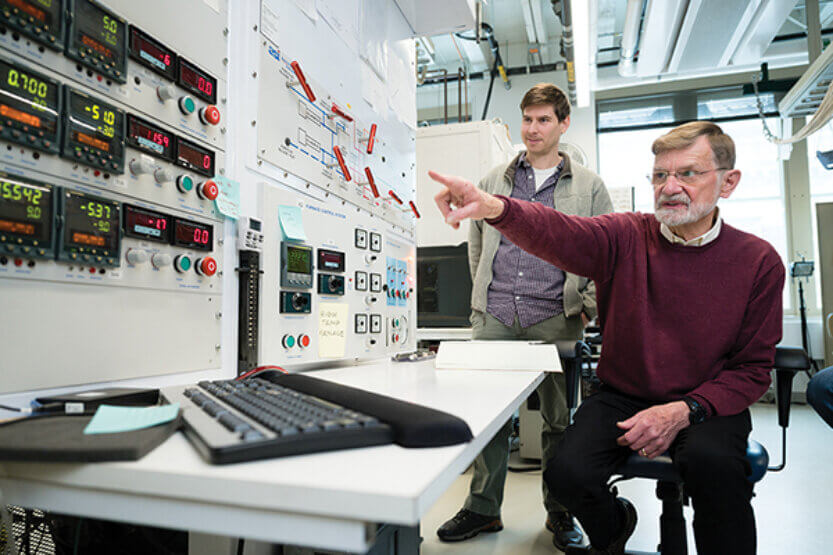Earth Scientist
 “You can apply solid state physics to a broad range of problems,” says David Kohlstedt. His work in the field of geophysics led him to receive a top prize in Earth science. (Image by Rich Ryan)
“You can apply solid state physics to a broad range of problems,” says David Kohlstedt. His work in the field of geophysics led him to receive a top prize in Earth science. (Image by Rich Ryan) David Kohlstedt, MS ’67 ENG, PHD ’70 ENG, spent his boyhood in a farming community of 1,200 in South Dakota, where he developed a curiosity about how things work while helping his minister father repair lawn mowers and washing machines. Decades later, he has been awarded the Vetlesen Prize, considered to be the highest honor in the field of Earth science. Administered by the Columbia University Climate School’s Lamont-Doherty Earth Observatory, the award recognizes “scientific achievement resulting in a clearer understanding of the Earth, its history, or its relations to the universe.”
Kohlstedt is currently professor emeritus at the University of Minnesota, where, for more than three decades, he has studied the processes that take place in the Earth’s mantle, some 100 kilometers beneath the ocean floor. He recreates that activity in a laboratory, using high-temperature, high-pressure conditions in steel vessels. “Our approach has been to design experiments that simulate those processes and apply them from a microscopic to macroscopic level,” he says.
One of Kohlstedt’s most significant findings showed that only a minuscule amount of water can weaken the strength of rocks in the Earth’s mantle and create sufficient “melt” to cause volcanic eruptions at the Earth’s surface. His work also has been applied to glacial ice flow.
Following his time at the U of I, Kohlstedt did a four-year research stint at the Massachusetts Institute of Technology, then taught material science at Cornell University for 14 years.
“Illinois is the preeminent place for doing solid state physics,” Kohlstedt says. “John Bardeen, HON ’74, the winner of two Nobel prizes, was there at the time I was, and he had attracted some really talented faculty members. My thesis advisor, Wendell Williams, made it clear that you can apply solid state physics to a broad range of problems. That allowed me to think about applying it to doing geophysics.”
Kohlstedt says he is “enormously grateful” for the Vetlesen recognition. “I’m particularly grateful to the incredible cadre of exceedingly talented students, post-docs and colleagues who have worked with me. It’s to their credit that I’m receiving this award.”

